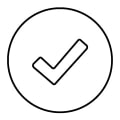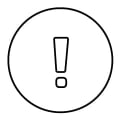HIV Testing: Care Instructions
Overview
You can get tested for the human immunodeficiency virus (HIV). Most doctors use a blood test to check for HIV antibodies and antigens in your blood. It may also check for the genetic material (RNA) of HIV.
What do the results mean?

Normal (negative)
- No HIV antibodies, antigens, or RNA were found.

Uncertain (indeterminate)
- Test results didn't clearly show if you have an HIV infection.
- HIV antibodies may not have formed yet.
- Some other type of antibody or antigen may have affected the results.
- You will need another test to be sure.

Abnormal (positive)
- HIV antibodies, antigens, or RNA were found.
- If you haven't had an RNA test yet, one will be done. If it's positive, you have HIV.
- If your test result is positive, your doctor will talk to you. You will discuss starting treatment.
Follow-up care is a key part of your treatment and safety. Be sure to make and go to all appointments, and call your doctor or nurse advice line (811 in most provinces and territories) if you are having problems. It's also a good idea to know your test results and keep a list of the medicines you take.
Where can you learn more?
Go to https://www.healthwise.net/patientEd
Enter T792 in the search box to learn more about "HIV Testing: Care Instructions".
Adaptation Date: 06/14/2024
Adapted By: Alberta Health Services
Adaptation Reviewed By: Alberta Health Services
